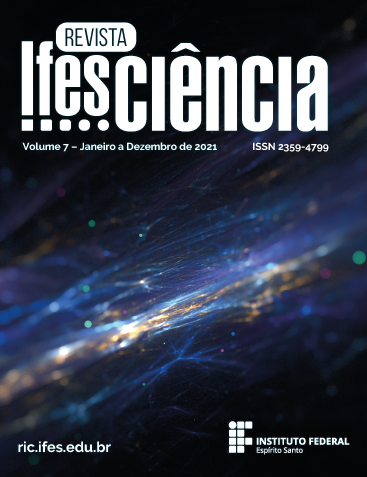QUALITY EVALUATION OF IN NATURAL MILK USED IN DAIRY INDUSTRY OF THE SOUTHERN OF ESPÍRTO SANTO STATE: A CASE STUDY
DOI:
https://doi.org/10.36524/ric.v7i1.978Keywords:
food safety, quality control, raw milkAbstract
Milk is an important product in human consumption, being a food widely consumed and with a high level and risk of contamination, therefore, it is essential to carry out quality control in order to guarantee the minimum standards of product demand that reach the consumers. Low quality milk also has reduced industrial capacity, being subject to changes in its physical-chemical composition, generating product disposal and increasing production costs. In this context, the objective of this work was to evaluate the quality of fresh milk used in the production process of a dairy in the south of the state of Espírito Santo. The mean values of the analyzes of physical-chemical composition, somatic cell count (CCS), total bacterial count (CBT), reception temperature, acidity, pH and cryoscopy, were within the standards established by the current legislation. However, of the total of 70 samples analyzed, 37 (52.86%) and 26 (37.14%) were found with CCS and CBT values, respectively, above the maximum standards determined by legislation. Thus, it is necessary to implement good production practices, adaptations to herd health management and hygiene during milking, with the adoption of technical assistance programs and training for associated producers
Downloads
Published
Issue
Section
License
Copyright (c) 2021 Revista Ifes Ciência

This work is licensed under a Creative Commons Attribution-NonCommercial-NoDerivatives 4.0 International License.
Autores que publicam nesta revista concordam com os seguintes termos:
- Autores mantém os direitos autorais e concedem à revista o direito de primeira publicação, com o trabalho simultaneamente licenciado sob a Licença Creative Commons Attribution que permite o compartilhamento do trabalho com reconhecimento da autoria e publicação inicial nesta revista.
b. Autores têm permissão e são estimulados a publicar e distribuir seu trabalho online (ex.: em repositórios institucionais ou na sua página pessoal) a qualquer ponto antes ou durante o processo editorial, já que isso pode gerar alterações produtivas, bem como aumentar o impacto e a citação do trabalho publicado (Veja O Efeito do Acesso Livre).



